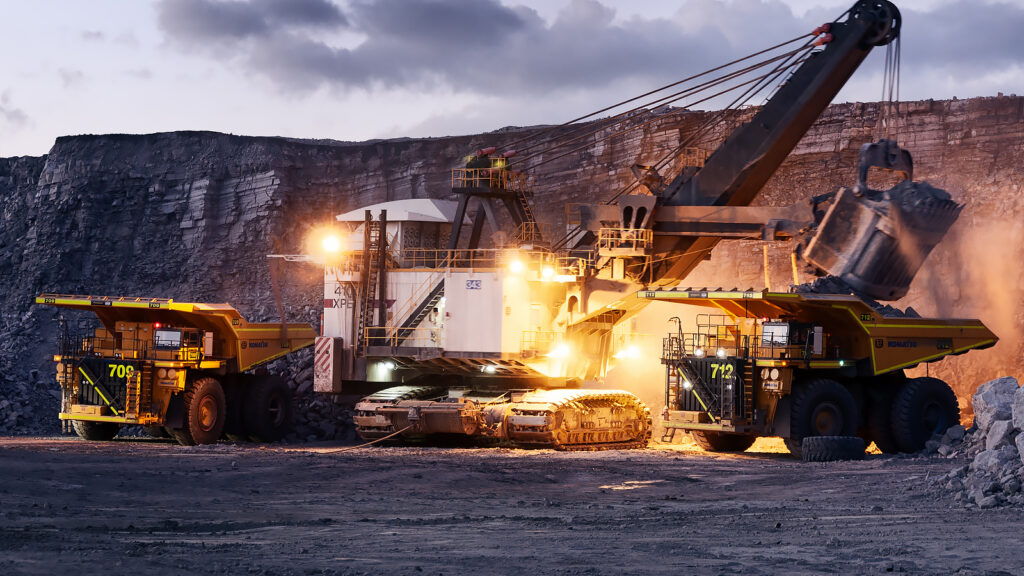
The global mineral mining boom, driven by the increasing demand for metals and minerals essential for modern technologies and green energy solutions, poses significant dangers to Indigenous communities worldwide. The pursuit of resources such as lithium, cobalt, nickel, and copper, essential for electric vehicles, batteries, and renewable energy infrastructure, has led to expanded mining activities in regions often inhabited by Indigenous populations. These communities face various threats as a result of the mining boom:
Environmental Degradation
Land and Water Contamination: Mining operations can lead to the contamination of land and water sources with toxic chemicals, heavy metals, and tailings. This pollution can degrade ecosystems, affecting flora and fauna that Indigenous communities rely on for sustenance and cultural practices.
Deforestation and Habitat Destruction: The clearing of forests for mining projects destroys habitats and biodiversity, which can disrupt the traditional lifestyles and economies of Indigenous peoples who depend on the forest for food, medicine, and materials.
Health Impacts
Exposure to Toxic Substances: Communities living near mining operations are at risk of exposure to harmful substances, leading to health issues such as respiratory problems, skin diseases, and other serious illnesses.
Noise and Air Pollution: The constant noise from mining equipment and the release of particulate matter into the air can cause chronic health problems and diminish the quality of life.
Displacement and Loss of Land
Forced Evictions: Many Indigenous communities face forced evictions from their ancestral lands to make way for mining operations. This displacement leads to the loss of homes, livelihoods, and cultural heritage.
Land Rights Violations: The expansion of mining often occurs without the free, prior, and informed consent of Indigenous peoples, violating their rights to self-determination and control over their territories.
Social and Cultural Impacts
Disruption of Traditional Lifestyles: Mining disrupts the traditional lifestyles of Indigenous communities, eroding their cultural practices, social structures, and spiritual connections to the land.
Conflict and Violence: The presence of mining operations can lead to conflicts over land and resources, sometimes resulting in violence and human rights abuses against Indigenous activists and community members.
Economic Inequities
Limited Economic Benefits: While mining can bring economic opportunities, Indigenous communities often receive a disproportionately small share of the benefits. Instead, they bear the brunt of the negative impacts while corporations and distant governments reap the profits.
Loss of Sustainable Livelihoods: Traditional and sustainable livelihoods such as agriculture, fishing, and artisanal mining can be undermined by large-scale mining operations, leaving communities economically vulnerable. Case Studies
Latin America: In countries like Peru and Brazil, Indigenous groups have protested against mining projects that threaten the Amazon rainforest and their way of life. Projects in these regions have led to severe deforestation, pollution, and social unrest.
Africa: In the Democratic Republic of Congo, cobalt mining has had devastating effects on local communities, including child labor, human rights abuses, and environmental destruction.
Australia: The expansion of mining projects on Aboriginal lands has led to significant cultural and environmental damage, with sacred sites being destroyed and traditional lands being taken without proper consultation.
Conclusion
The mineral mining boom, while vital for global technological advancement and the transition to green energy, has severe repercussions for Indigenous communities. To mitigate these impacts, it is essential to enforce stronger regulations, ensure the participation and consent of Indigenous peoples in decision-making processes, and promote sustainable and equitable mining practices. Protecting the rights, health, and environments of Indigenous communities must be prioritized to prevent further harm and ensure a just transition to a sustainable future.





